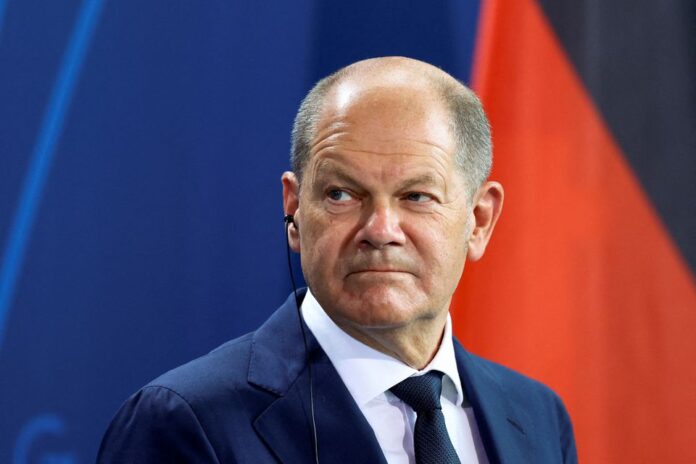German Chancellor Olaf Scholz’s ruling coalition agreed to help ease the burden on regional and local administrations struggling to cope with rising numbers of refugees and other migrants, according to Bloomberg.
After talks hosted by Scholz at the chancellery in Berlin that stretched into the early hours of Tuesday, his government said it had agreed to payments of €7,500 per asylum seeker starting next year, together with other measures like curtailing benefit payments, that would reduce costs for Germany’s federal states and municipalities by about €3.5 billion, according to a joint statement.
Scholz called the accord, which ended months of wrangling between federal and regional officials, “a very historic moment,” while Finance Minister Christian Lindner said cutting benefits for asylum seekers will save about €1 billion.
It would also help discourage some migrants from heading to Europe’s biggest economy as it would “reduce the appeal of the German welfare state,” Lindner said in a post on X.
Pressure has been mounting on Scholz’s three-party coalition to tackle the challenges provoked by expanding immigration and check the momentum of the far-right Alternative for Germany, which has seized on the issue to try to lure more voters away from mainstream parties.
Germans are increasingly disgruntled with the government’s handling of undocumented immigration as officials struggle to deal with the largest influx of refugees since 2015, opinion polls show.
While the number of people fleeing to Germany from Ukraine has fallen significantly, arrivals from other countries have led to problems with accommodation and integration.
“State and local authorities are increasingly reaching the limits of what they can afford in terms of reception, accommodation and care,” according to Tuesday’s statement. “It is not possible to create additional accommodation indefinitely.”
Scholz has repeatedly called in recent weeks for a crackdown on illegal migration, particularly the smugglers who transport people clandestinely across Germany’s frontiers.
His government has tightened border checks and last month approved a draft law that aims to make it easier to deport people who don’t have the right to stay in the country.
As well as addressing immigration, Scholz and regional officials also agreed on measures to speed up planning and approval for building projects including wind turbines, power transmission and rail infrastructure and apartments.
They also signaled backing for extending a discount rail ticket into next year, though the details of how it will be financed must still be worked out.


